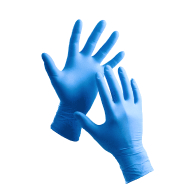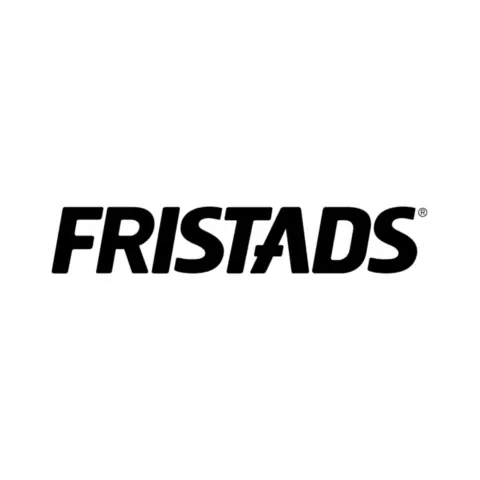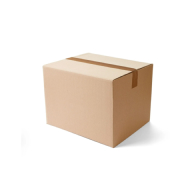Fristads Airtech Winter Jacket
Product description
Related Content
Fristads waterproof, windproof and breathable HiVis winter jacket with functional pockets and detachable hood.
Features:
- Breathable Airtech® material RET12
- Certified according to EN ISO 20471 class 2 - size XS - and class 3 - sizes S-4XL -, Color 271 approved according to RIS-3279-TOM:2016 Issue 1 UK Railway Standard, EN 343 class 3/1 and EN 342, outer material meets class 3 for water vapor permeability; compliant with EN 343 3/3
- Tested according to industrial washing standard ISO 15797
Offers head and neck weather protection. The attached hood provides warmth and shields against elements, enhancing comfort and functionality.
Offers full arm coverage for protection and warmth in demanding work environments. Enhances safety and comfort with durable, long-lasting sleeves.
Defines the primary substance used in construction, affecting durability, protection level, comfort, and resistance to workplace hazards and weather conditions.
Measured in grams per square meter (g/m²), indicating fabric density and durability. Higher numbers mean heavier, more protective materials for demanding environments.
Indicates total storage compartments on the garment, enabling organization of tools, devices, and essentials for efficient, hands-free work.
Determines how far the jacket extends down the body, affecting mobility, protection coverage, and compatibility with tool belts or other workwear.
Provides secure, concealed storage inside the garment. Ideal for protecting valuables and personal items from the elements and potential loss.
Designed for quick ID display. Clear window ensures easy visibility of identification, streamlining security and access in work environments.
Designed for secure phone storage and easy access. Keeps devices protected and readily available on the job. Ideal for convenience and efficiency.
Offers secure storage for valuables and tools. Zipper closure keeps items safe and protected during demanding work conditions.
The mechanism that secures the garment, affecting ease of use, security, and functionality. Different styles offer varying levels of quick access and durability.
Defines the neck area design that affects weather protection, comfort, and compatibility with safety equipment like helmets and other PPE.
Defines how sleeve ends are finished and secured at the wrist, affecting weather protection, comfort, and compatibility with work gloves.
Describes how the jacket sits on the body, affecting comfort, mobility, and layering options. Choose loose for maximum freedom, regular for balanced wear, or slim for a closer fit.
Designed for versatile wear by anyone, providing a comfortable fit and neutral style. Offers practicality and ease for various work environments.
Designed with a traditional masculine cut, these jackets and vests offer a comfortable fit with broader shoulders and a straight body.
Designed for a comfortable and tailored fit, providing enhanced mobility. Contoured to better suit the female form for all-day wear and performance.
Request a free sample
Test first and buy later. Visit any product page to request your free sample.
Standards and labels
EN 13688:2013 is a European standard that specifies the performance requirements for protective clothing. The standard includes requirements for safety, comfort, and durability, as well as tests for determining these properties. Protective clothing includes items like coveralls, aprons, and gloves that are worn to protect the wearer from hazards. Possible test results include resistance to chemicals, heat, abrasion and tearing, as well as breathability and comfort. The clothing can be tested under different conditions to check if it meets the standard's requirements.
EN 342:2017 is a European standard that sets out safety requirements for personal protective equipment (PPE) to be used for protection against cold. It is an updated version of the original standard EN 342:2004 and it includes new and improved requirements for the PPE. The standard defines the general requirements for PPE, including design and construction, marking, instructions for use, and packaging. Performance requirements include things like thermal insulation and protection against water penetration, breathability, and test results may include measurements of these properties. The standard also specifies the testing methods that should be used to test PPE, such as measuring the thermal resistance of the materials and the resistance of the garment to water penetration and breathability.
EN 343:2003 is a European standard that sets out safety requirements for personal protective equipment (PPE) to be used for protection against bad weather. The standard defines the general requirements for PPE, including design and construction, marking, instructions for use, and packaging. Performance requirements include things like waterproofness, breathability, and visibility and test results may include measurements of these properties. The standard also specifies the testing methods that should be used to test PPE, such as measuring the resistance to water penetration, breathability, and visibility of the material.
Test results
Waterproofness Class 1The EN 343:2003 standard, Waterproofness Class 1 denotes the basic level of waterproof protection deemed compliant under this specification. This result means that the garment or product can resist water penetration to a minimal degree (more than 8000 Pascal Pressure units before pre-treatment), making it suitable for light exposure to rain or damp conditions but not under heavy or pressurized water exposure. The test method to determine this waterproofness involves subjecting the fabric or material to water penetration under controlled conditions, measuring the amount of water that passes through the material over time. This typically involves using a hydrostatic head test where water is pressured against the fabric, ensuring that the product maintains minimal water resistance according to the standards. For business and procurement decisions, understanding that a product meets Class 1 waterproofness according to EN 343:2003 suggests it is suitable for environments with occasional or light contact with water, but not for prolonged or extreme conditions .
EN ISO 20471:2013/A1:2016 is a standard for high visibility clothing worn in certain work environments. It sets guidelines for clothing to make sure people can see the person wearing it well in low light conditions. Test results are used to make sure the clothing meets these rules. The tests include checking the amount of reflective material on the clothing and how well it can be seen from different angles, including under different lighting conditions.
Oeko-Tex Standard 100 is a product certification program for textiles, which is awarded by the Oeko-Tex Association. This program verifies that the textile products are free from harmful chemicals. To be able to use the Oeko-Tex Standard 100 label, a product must meet certain requirements set by the Oeko-Tex Association which include limits on the levels of harmful substances such as pesticides, heavy metals, and formaldehyde. The textile products are inspected and certified by Oeko-Tex, they can use the Oeko-Tex Standard 100 label on their packaging to show that they are free from harmful chemicals. This certification is for all types of textiles, from raw materials to finished products, and it is globally recognized.
Fristads delivery terms
Free delivery for all Fristads products
137,75 €
Price per piece
137,75 € / piece
Shipping fee is 6,33 € for orders under 150,00 €
Sold in units of one piece
Need larger quantities?
Other products you may like
Recently viewed
Need help?
Get help from our experts
Other products you may like
Similar products you may like
Recommended for you
Fristads
Delivery time: 3 business days
Supplier shipping fee 6,33 €
Free shipping on orders over 150,00 €



Find +150,000 products from hundreds of brands
Autonomous sourcing platform
The most efficient way to source and order supplies for your operations
Sourcing
Ordering
List products you’re looking for and we’ll find the best products and prices for you – all for free.
Need help?
Get help from our experts
